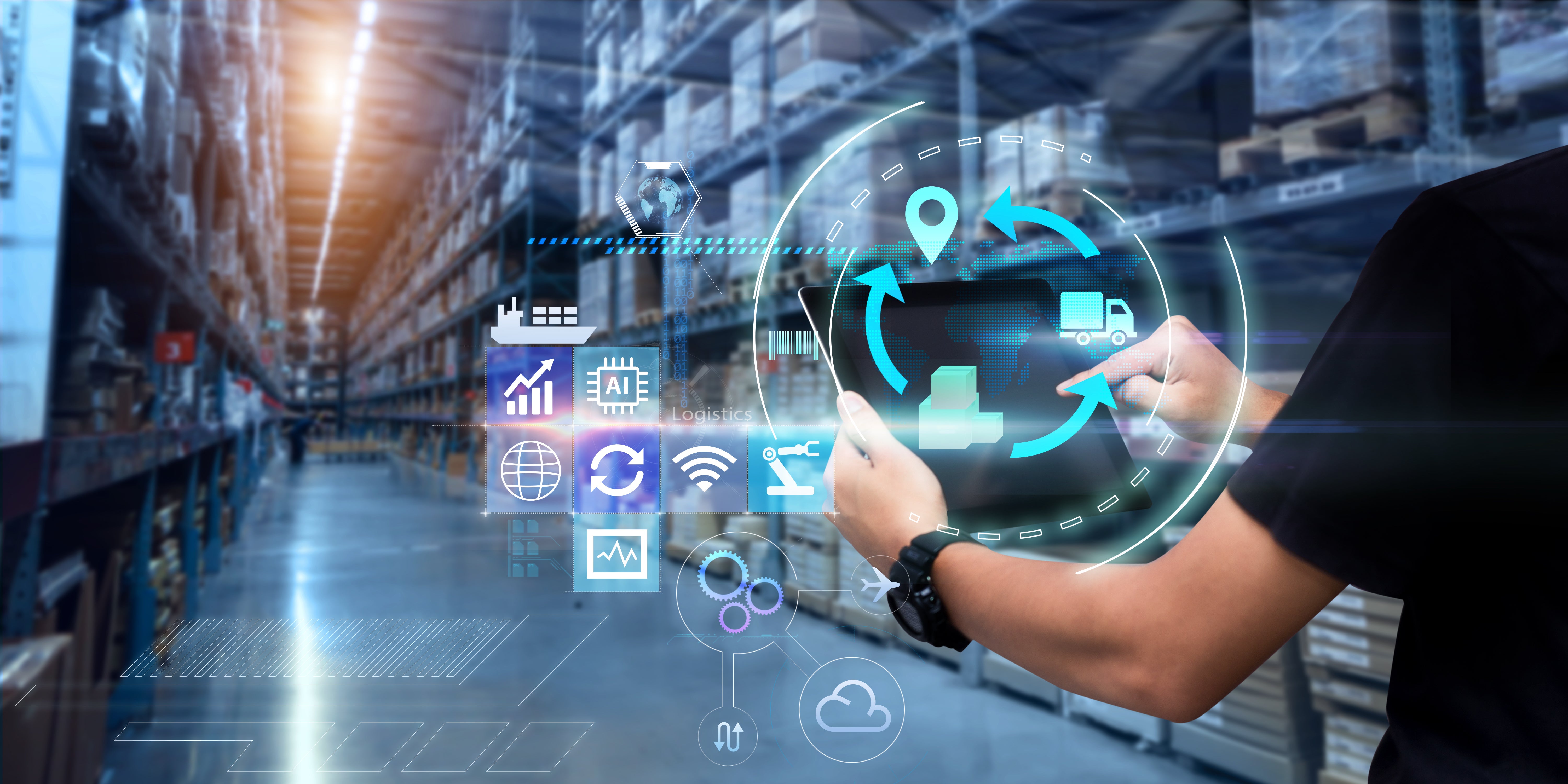Unlocking the future of retail: how AI networks are revolutionising customer experience
THE ARTICLES ON THESE PAGES ARE PRODUCED BY BUSINESS REPORTER, WHICH TAKES SOLE RESPONSIBILITY FOR THE CONTENTS

Juniper Networks is a Business Reporter client.
Imagine walking into your regular supermarket and casually browsing the wine aisle, when suddenly a message pops up on your phone. “Thank you for purchasing red wine last week,” it reads. “We hope you enjoyed it! As part of a loyalty program, we would like to offer you a special discount of 20 per cent if you purchase three bottles today.”
Thanks to your loyalty app being connected to the supermarket Wi-Fi network, the store not only recognised you but also analysed your previous purchases. It then used virtual Bluetooth low-energy (vBLE) sensors to extend you a personalised offer as you strolled past the shelves.
How would this small interaction make you feel?
It would most likely elevate your customer experience, leaving a positive impression in your mind. Not only would it benefit you as a customer, but it would also establish the supermarket as a provider of exceptional service, fostering loyalty and encouraging repeat business.
In today’s fiercely competitive retail landscape, offering such personalised customer experiences can be a game-changer. Amid economic uncertainties, surging inflation and supply chain disruptions, retailers are engaged in multifaceted battles to sustain and grow their operations. In this context, providing remarkable customer experiences emerges as a vital strategy for gaining and maintaining a competitive edge.
Transforming customer experiences through connected retail
Contrary to what many believe, customer experience (CX) extends beyond the contact centre and encompasses every touchpoint throughout the customer journey, whether physical or virtual. *Gartner® defines customer experience as the customer’s perceptions and related feelings caused by the one-off and cumulative effect of interactions with a supplier’s employees, systems, channels or products.
The retail industry is undergoing a transformative shift driven by advanced technologies and digital solutions, leading to the emergence of connected retail experiences. This new era of connected retail is revolutionising in-store customer experiences by enabling personalisation, convenience and seamless interactions.
At the core of this lies the power of connectivity. Retailers are leveraging robust network infrastructure, such as in-store Wi-Fi, Bluetooth low-energy (BLE) beacons and smart devices, to connect various touchpoints and enhance the shopping experience. This connectivity allows real-time data collection and analysis, providing valuable insights into customer preferences, behaviour and purchasing patterns (both at the individual and the meta levels).
Armed with this information, retailers can personalise offerings, tailor promotions and deliver relevant recommendations, creating a highly engaging and personalised shopping journey.
Connectivity is also driving innovation in payment systems, with the widespread adoption of mobile payment technologies and contactless transactions. Customers can now make purchases conveniently and securely using smartphones or wearable devices, eliminating the need for physical cash or cards. This seamless and efficient payment experience not only enhances customer satisfaction but also speeds up the checkout process, reducing wait times and improving overall operational efficiency for retailers.
Take the example of seamless Grab-And-Go services, where retailers offer automatic delivery when a customer arrives for pickup. There is no need for signing in, sending a text or making a phone call. When a customer arrives, the location network identifies their presence on-site, and the order is fulfilled.
Furthermore, connectivity is transforming inventory management and supply chain operations. Real-time data synchronisation and connectivity between suppliers, warehouses and retail stores enable accurate inventory tracking, optimised stock levels and efficient order fulfilment. This improves inventory accuracy, reduces stockouts, enables faster replenishment and enhances overall supply chain visibility and efficiency.
To retain market share and drive revenue growth, brands need to ensure they stand out from their competitors. It is essential for retailers to embrace the opportunities provided by connected retail to thrive in this digital age.
Studies also support this argument. A recent survey conducted by Salesforce across the UK, US, Canada, Australia and Singapore highlighted that consumers expect brands to use their data to offer more relevant customer experiences. In fact, more than 65 per cent of consumers surveyed said they would remain loyal to a brand that offers a more personalised experience.
The survey also revealed that customers are frustrated with brands that provide disconnected experiences, repeat previously answered questions, or offer irrelevant products.
These findings underscore the imperative of intelligent connectivity and personalisation in enhancing customer experiences within today’s retail landscape.
Since customer preferences have shifted towards connected convenience, making it a crucial aspect of the overall customer experience, retailers need to combine CX and omnichannel engagement with mobile technology and retail applications. This would enable the seamless sharing of information throughout the customer journey.
To further enhance retail experiences and keep up with evolving customer habits, many brands are trialling new technologies.
Innovative developments such as augmented reality (AR) allow customers to virtually try on clothes or visualise products in their own space before purchasing. Virtual reality (VR) creates immersive environments and virtual showrooms where customers can explore products and make informed decisions.
The internet of things (IoT) connects physical objects to the internet, enabling smart stores with real-time inventory tracking and personalised recommendations. Beacon technology uses Bluetooth signals to deliver location-based notifications and offers to customers, enhancing engagement. Mobile apps provide personalised recommendations, mobile payments and loyalty programs for seamless and convenient shopping experiences.
These technologies enhance customer satisfaction, drive loyalty and differentiate retailers in a highly competitive market.
AI networks to drive the future of retail
While AI may sometimes seem like a fad, its impact is being felt across the world. PwC’s Global Artificial Intelligence Study suggests that AI will contribute $15.7 trillion to the global economy by 2030.
In the past few years, the retail industry has witnessed a significant acceleration in digitalisation efforts, including the integration of AI technologies. This digital transformation is felt across retail, from the use of digital signages in advertising to the implementation of automated store systems and enhanced checkout experiences. Automated stores and self-service checkouts, as exemplified by Amazon Go, have gained rapid popularity on a global scale.
The adoption of intelligent AI networks has not only enhanced connectivity but also revolutionised the foundational infrastructure within the retail sector. “Imagine you’re a pharmacy with 1,700 store locations across the UK,” says Jamie Pitchforth, Head of Strategic Business, UK & Ireland, at Juniper Networks. “If, for any reason, a cable is malfunctioning – whether it’s unplugged, bent or snapped – network intelligence means the network will be smart enough to go beyond just stating that the services are down. Instead of requesting someone to be sent out to find the precise fault, the intelligence of the network would enable it to identify the issue as a cable problem. So local, non-technical staff in the affected store can easily and quickly fix the issue.
“This capability to extend beyond the network and into peripheral components is incredibly powerful. Rather than having people running around trying to troubleshoot the network and consuming valuable resources, these issues can be rapidly identified through automation. This is not only a commercial game-changer but also serves as a significant differentiator in terms of customer experience.”
Moreover, Deloitte predicts that the slowing global economy will keep the growth of retail sales in check. There’s a significant chance that a recession (which Deloitte rates at a 35 per cent probability) would make things much worse. Additionally, inflation has lowered consumers’ purchasing power.
But despite these challenges, consumer spending on services has been steadily increasing, with some consumers even dipping into their savings to make up for missed opportunities during 2020-21.
This indicates that although sales may be declining, retailers can attract customers who are willing to spend. It then boils down to which retailers can effectively attract and engage these customers, resulting in heightened competition.
To capitalise on this opportunity, retailers need to put up a stronger fight to win over consumers. This is where AI-driven networks can play a vital role, helping retailers overcome these challenges and enhance the customer experience to attract and retain customers.
Thriving in retail means challenging the status quo
“Nobody uses in-store Wi-Fi,” “People only shop online nowadays,” “Stocking the right products is all that matters” – you must have heard phrases like these before.
Unfortunately, many retailers still cling to such outdated beliefs that thwart their success in this digital era. But relying on the status quo and hoping to thrive by doing things the way they’ve always been done doesn’t cut it anymore.
Increasingly, customers are demanding a seamless shopping experience across multiple channels. To keep up with changing consumer preferences and stay relevant in this hyper-competitive landscape, it’s more important than ever for retailers to adopt digital transformation, take risks and be willing to experiment. There needs to be a focus on improving customer experience by investing in technology.
Retailers who stick to traditional ways of working are likely to be knocked out of the market by tech- and data-driven organisations. Those who fail to meet evolving customer expectations will lose out to competitors who do.
Retailers must embrace change or risk fading away. They must demand more so that they can deliver more.
Take the example of Halfords, the UK’s leading provider of motoring and cycling products and services.
During the pandemic, Halfords witnessed strong growth in online sales. To improve the customer experience and implement digital transformation, the company embraced innovative tech-driven solutions such as contactless click-and-collect in its car parks, and mobile field service software. However, Halfords encountered challenges due to its ageing in-store networks, which proved to be a major roadblock to improved sales and services.
To overcome these obstacles, the 131-year-old company partnered with Juniper Networks and leveraged Juniper’s Mist AIä and cloud architecture to enhance its commercial services and provide a unified, omnichannel experience for customers.
Powered by Mist AI and Juniper wireless access points, Halfords delivered Wi-Fi 6 and virtual Bluetooth LE services to its staff and customer smartphones, point-of-sale devices, in-store video displays and other connected devices. Juniper switches were used to establish high-performance access networks.
Replacing its legacy systems with Juniper’s wired and wireless networks across stores, Halfords was able to optimise user experiences and simplify IT operations through automated network assurance and proactive problem detection and resolution.
As a result, it reduced network-related trouble tickets by 100 per cent and achieved a 35 per cent improvement in the uptime across its more than 1,400 garages, stores and mobile vans, contributing to a revenue of £1.39 billion in 2022.

Juniper Networks is a market leader in AI networking, cloud and connected security solutions.
Juniper dramatically simplifies network operations and drives superior experiences for end-users. The company’s solutions deliver industry-leading insight, automation, security and AI to drive real business results while empowering users to solve some of the biggest challenges in wellbeing, sustainability and equality.

Want to find out more? Join award-winning retail transformation consultant Oliver Banks and Juniper’s Keith Cahoon for a discussion on how retail stores are using technology to evolve.
2pm BST/3pm CEST, 6 July 2023
*Gartner IT Glossary, Customer Experience, as of June 29,2023,Gartner is a registered trademark and service mark of Gartner, Inc. and/or its affiliates in the U.S. and internationally and is used herein with permission. All rights reserved

Bookmark popover
Removed from bookmarks